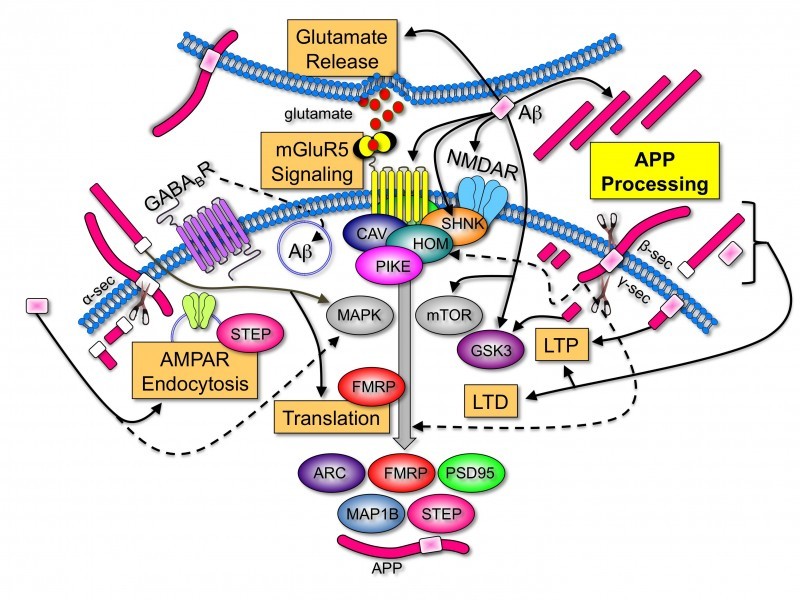Preclinical Testing of Sleep-Wake Patterns as an Outcome Measure for Fragile X

Cara Westmark, PhD
Principal Investigator
University of Wisconsin
Madison, WI
2016-2018 Grant Funding: $122,000
Summary
With this grant, Dr. Cara Westmark at the University of Wisconsin-Madison launched a study of sleep disorders in Fragile X syndrome. “During the course of our FRAXA-funded work, we serendipitously discovered rodent diet affects seizure propensity in the Fragile X mice, which has opened a whole new area of investigation for the laboratory,” reported Dr. Westmark.
The Science
University of Wisconsin senior scientist Cara Westmark, PhD, studies the effect of promising therapeutics on sleep in Fragile X mice
by Ted Coutilish
Your child finally falls asleep.
You quickly celebrate before quietly turning to your favorite book or another episode of Game of Thrones.
You tiptoe to bed.
Exhausted, you slowly fall asleep. Enter deep REM.
Minutes later, you are awoken loudly. Your bundle of joy with Fragile X syndrome (FXS) is now bouncing off you, wide awake, screaming, smiling, and demanding you join the party before you all return to bed after a few rounds of cajoling and pleading.
Minutes later, repeat, rinse.
Hitting home?
The oh-my-it’s-way-too-early morning parties may be over if new research by Cara Westmark, PhD, is successful.
Westmark, senior scientist, Department of Neurology, University of Wisconsin previously found proteins involved in Alzheimer’s disease are over expressed in Fragile X mice. She believes drug treatments that normalize the levels of these proteins for Alzheimer’s disease could be repurposed to benefit FXS patients. Working closely with Elizabeth Berry-Kravis, MD, PhD, professor, Rush University Medical Center, Westmark found altered levels in the full-mutation Fragile X males.
Expanding her previous research, Westmark is now looking to study sleep/activity as a new outcome measure.
“Our recent research has found altered rest-activity cycles in Fragile X and Alzheimer’s disease mice,” said Westmark, who earned degrees from University of Notre Dame and Clarke University. “The mice are much more active during the light cycle when rodents are supposed to be sleeping. Sleep deficits are a common problem in FXS and Alzheimer’s disease.”
Altered signaling at synapses is involved in causing sleep disorders in Fragile X syndrome
Westmark’s long-term research goal is to determine the effect of promising Fragile X drugs on sleep. “We will measure REM and non-REM sleep by EEG,” she said. “Our biggest potential research benefit is the possibility of rapidly repurposing the latest health craze technology, such as the Fitbit, into an outcome measure for Fragile X clinical trials.”
Westmark thanks FRAXA for supporting her past and current research studies.
“This research would not have been possible without FRAXA grant support and without the invaluable collaborations with other FRAXA investigators,” she said. “During the course of our FRAXA-funded work, we serendipitously discovered rodent diet affects seizure propensity in the Fragile X mice, which has opened a whole new area of investigation for the laboratory. The interaction between dietary components in rodent feed and therapeutics may help explain why so many drugs do not transition from the bench to the clinic.
“FRAXA has created a vibrant and collaborative research community. It makes those of us working at a lab bench feel like we’re part of an important cause and really gives perspective to our work when we have opportunities to interact with families.”


